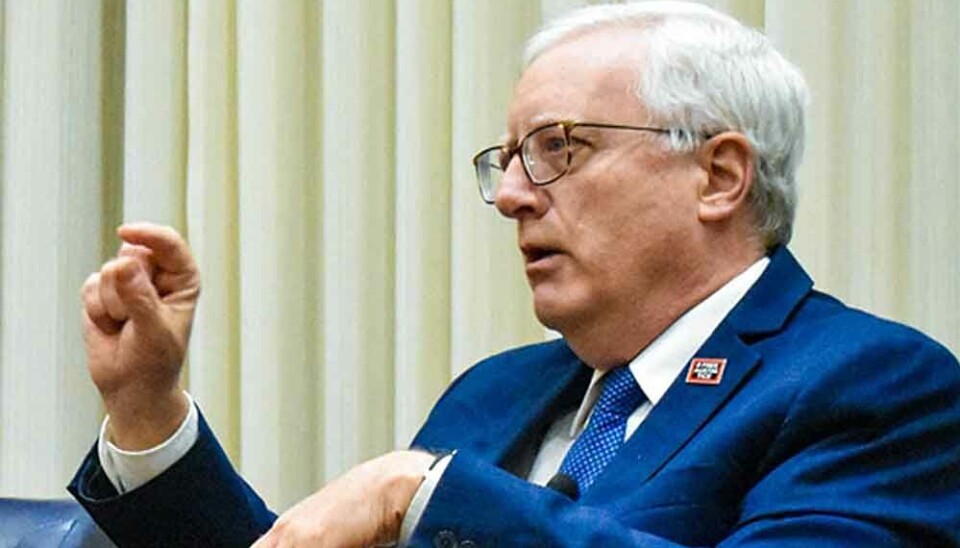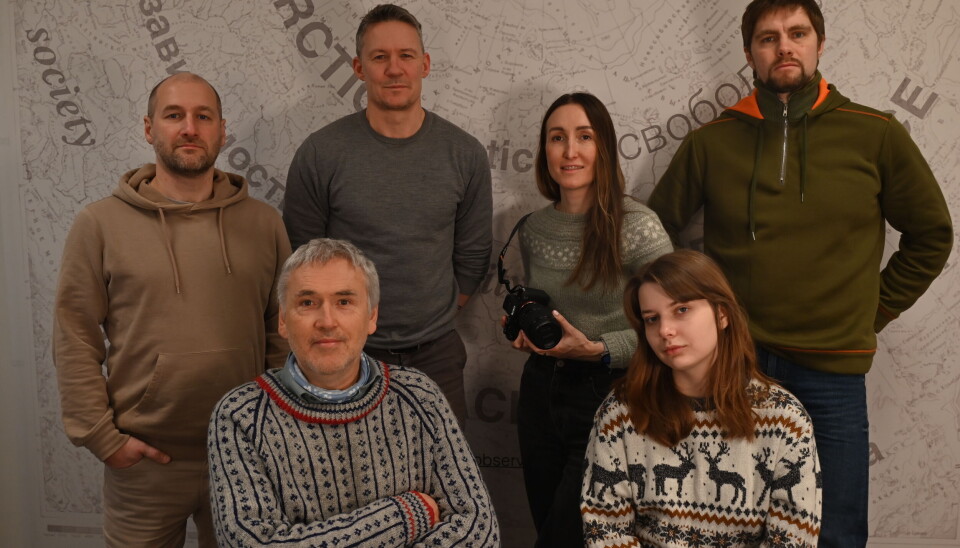
“You have to take a side. Our side is the truth”
When William McCarren talks about press freedom today, he doesn’t speak in abstract terms. The longtime executive director of the National Press Club and now head of its new Press Freedom Center sees a world where increasingly journalists are under siege—imprisoned, exiled, injured, or killed. The Barents Observer this week takes part in a event in Washington DC on defence of free journalism hosted by the Press Freedom Center and Arctic Today.
“There is no neutrality when a journalist is killed,” McCarren said. “You have to take a side. Our side is the truth.”
While authoritarian regimes often dominate the headlines for violence against journalists, McCarren points out that threats to press freedom are not confined to faraway autocracies. In the United States, reporters face growing challenges, from harassment and online intimidation to increasing restrictions on access to government information. Legal pressures, smear campaigns and violence at political rallies have all contributed to what press advocates warn is a steadily worsening climate for journalists even in the world’s oldest democracy. The current U.S. president has often directed his ire at media outlets that have reported on him unfavorably and has even gone so far as to threaten lawsuits.
Help for journalists
The Press Freedom Center, launched in late 2024, is designed to offer tangible support: helping displaced reporters find housing, offering legal aid and pushing for accountability in cases of violence against the press. As threats escalate globally, McCarren is determined to keep the issue visible in Washington and beyond.
On May 1, as part of that mission, the Center will host an event at the National Press Club sponsored by Arctic Today. The event is part of a series of events, which are part of the World Press Freedom Week. The Arctic Today event will feature journalists from the Barents Observer, an independent news outlet based in northern Norway, just minutes from the Russian border. It aims to spotlight the threats to free press in the Arctic.
McCarren described the event as part of a broader effort to build visibility around areas where journalism is increasingly suppressed, not only in traditional capitals but at global frontiers.
Enemies of the Russian state
Few know that better than Thomas Nilsen, editor of the Barents Observer. For more than a decade, his newsroom has been targeted by Russian authorities, including efforts by the FSB to shut them down and a block on their site. Yet the Barents Observer persists, delivering independent coverage of a region critical to global security, energy and climate change.
“We are not afraid of Putin. He is the one afraid of us,” Nilsen said. “That’s why they block us. That’s why they fear free, independent journalism — especially when it speaks directly to Russian readers.”
For Nilsen, the May 1 event is about more than raising awareness. It’s about showing that exile journalism can not only survive but thrive. After Russia’s full-scale invasion of Ukraine in 2022, the Barents Observer opened its doors to Russian journalists fleeing repression, continuing to report on Arctic developments from just across the border.
“With phones and the internet still working, it’s actually a tremendous amount of good journalism that can be made from exile,” Nilsen said.
McCarren claims that international support and solidarity are critical for journalists operating under threat. He sees the collaboration between Arctic Today, the Press Freedom Center, and the Barents Observer as emblematic of a larger fight: building alliances, sharing knowledge and refusing to let authoritarian regimes dictate what the world sees and hears.

As the world’s attention shifts increasingly toward the Arctic’s geopolitical importance, the May 1 event aims to make clear that freedom of the press is just as vital in Tromsø or Kirkenes as it is in Kyiv, Washington, or Moscow—and just as vulnerable.
“Fact-based journalism always stays stronger than polar romanticism,” Nilsen said. “It’s our job to keep the truth alive, no matter where we are.”
The May 1 event will be open to National Press Club members, invited guests and available via livestream to a broader global audience — an audience that, both McCarren and Nilsen hope, will leave not only informed but inspired to act.















